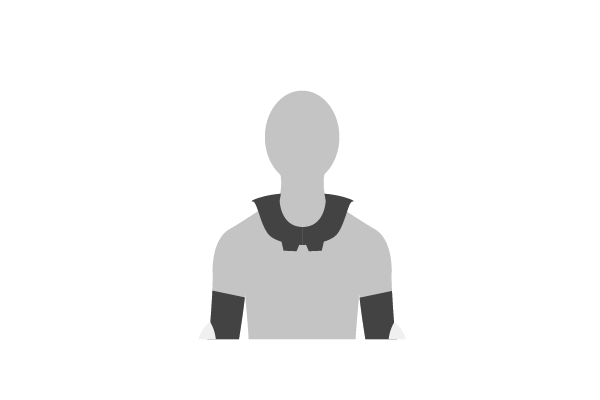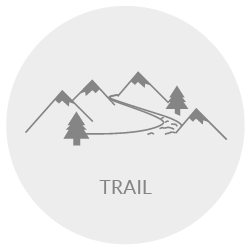Featured Brands
Recommended Products
WINTER20
Get free shipping, on most items, with your $50 purchase today! Same day shipping on most orders if placed by 3pm PST.
PLEASE NOTE:
This offer is only available to physical shipping addresses in the 48 continental United States (no PO Boxes), and some exclusions apply.
Oversize Charges
Some large and/or heavy items are subject to additional oversize charges that are separate from standard shipping costs.
Bike Build Process
All bikes are built, tested, tuned, and ready to ride upon shipment. The bike build process typically takes 2-3 days to complete depending on the bike model and the complexity of the build.
Stock Status
Orders for in-stock items placed by 3PM PST usually ship on the same day. Orders that include special-order or backordered items may be subject to shipping delays depending on product availability. Refer to estimated delivery times in cart when selecting shipping options.

Our Gear Advisors are Ready to Help.
Jenson USA carries one of the most extensive selections of curated bike gear online. We’ve developed learning guides to aid you in making informed decisions and we have backed this up with our expert Gear Advisors who are available by phone, chat, or email 7 days a week.
Finding the right combination of mountain bike protective gear to match your riding style is crucial. This guide will help you in choosing the right fit, style, and functions of your bike protective gear to match your needs and riding style. If you have more questions, please call our Gear Advisors at 888-880-3811 to get more help
SHOP PROTECTIVE GEARKeeping your body protected while riding allows you to push harder and get back on the bike when you do take a spill. The type of riding you do will determine what types and how much protective gear you wear. At a minimum, all riders should wear a helmet and we have created a separate Helmet Guide (link) to help you find the correct protection for your head. Beyond that, riders can opt for more protective pieces. The list of possible protective gear includes:
Mountain bike gloves protect your hands in several ways. They add protection from abrasions while riding or in the event of a crash, but they also can provide additional comfort and grip while riding and help to manage sweat. Gloves range from half-finger to full-finger coverage and can be built with varying levels of breathability and protective elements.

If you’ve ever hit your funny bone, you know that impacts to your elbows are no fun at all. Elbow and forearm protection allow you to push your limits and challenge yourself to learn new riding skills. They can help add confidence and allow you to take a tumble and get back on your bike. Most riders will elect to add elbow pads as their riding gets rowdier. New sleeve-style pads are making these pads more comfortable and breathable

Often knees can take some of the biggest and most frequent impacts in a crash. This is why we recommend knee protection for several levels and styles of riding. Luckily, there is a range of minimal-maximum coverage and protective materials, so you can match your needs of comfort and pedal efficiency to your desire to keep your body safe.

These are generally reserved for hard-charging gravity riders who are taking on the steepest and gnarliest terrain. These range from minimal roost protectors that only cover your chest and have limited protection to full-own upper body armor that can cover your chest, shoulders, and sometimes arms with hard nylon shells for maximum impact protection. Many of these have spine protection integrated and can incorporate neck protectors as well.

These devices are designed to sit on your shoulders, and to limit the range of motion of your full-face helmet during a crash. The idea behind this is to limit neck injuries and neck pain from hard impacts. These are mostly used in downhill riding or freeriding and must be used with a full-face helmet to provide neck support.

Riding bikes is loads of fun, but occasionally we fall off our bikes and when that happens, it is highly important to have a bike helmet protecting one of our most sensitive and crucial parts of our bodies. Current generations of bike helmets are lighter and more comfortable than ever before while still providing heaps of brain protection.
There are many other factors to consider when choosing a bike helmet that are important to know about so check out this guide on how to choose the right helmet for you:
HOW TO BUY A HELMET
When it comes to protective gear fit, you will want a snug but not-constricting fit. This applies to everything from bike gloves to knee pads. This will keep your gear in place throughout your ride and provide better protection when you do crash. It will also help to avoid hotspots or chaffing while you pedal. A lot of protective gear will be constructed of impact materials attached to a core of flexible materials to aid in a comfortable fit. They will also use straps to customize that fit further and keep your gear in place
When checking the fit of your protective pads and armor, follow these simple steps
Like most bike gear, your choice in protective gear will be largely determined by your style of riding. As speed increases and the terrain gets rowdier, the amount of protection needed increases as well. Alternatively, lighter weight protective gear will be more comfortable for pedaling and offer increased breathability over protective gear with more impact protection.
Cross country riders will tend towards a minimal approach to riding protection. These riders focus on speed and efficiency and tend ride less challenging terrain with minimal airtime. This means that XC riders require only minimal protection.

Trail riders tend to take on steeper, rowdier terrain with a bit more airtime. This translates to an increased need in protective gear, but trail riders don’t want to give up on pedal efficiency either. A blended approach to this protective setup is key.

The majority of bike helmets will land in the half shell category including road, commuter/urban, MTB, and BMX style bike helmets. These bike helmets run a wide range of designs and builds that are distinct for the type of riding they are intended for. Road bike helmets put more focus on venting, aerodynamics, light weight, and provide a bit less coverage. Mountain bike helmets emphasize more coverage and protection for the back, temples, and jaw areas of the head and loads of ventilation. MTB helmets tend to be somewhat heavier due to the types of impacts that they must protect against.

The search for the perfect protective kit setup will likely change as your riding progresses or vary for the type of trails you are riding. You may find that your setup will be composed of an assortment of pieces that allow you to cater your protection levels for specific rides.
We want to make sure you can go from shopping to riding as soon as possible. Our expert Gear Advisors are available to help you cater your protection setup with just the right combination of protection and comfort. Contact a Gear Advisor: 888-880-3811, Mon-Fri: 7:30am to 7pm, Sat-Sun: 9am to 5pm (PST).
SAVE 20% ON FIDLOCK
SHOP NOW
SHIP ALMOST ANYTHING & SAVE
SHOP NOW
,format=auto/globalassets/homepage/special-offers/2025_03/fidlock-sob.jpg)
,format=auto/globalassets/homepage/special-offers/2024-02/jensonusa-exclusives-sob.jpg)
,format=auto/globalassets/homepage/special-offers/2025_01/sob-jbs.png)
,format=auto/globalassets/homepage/special-offers/2024-06/one-up-hub-hub.jpg)